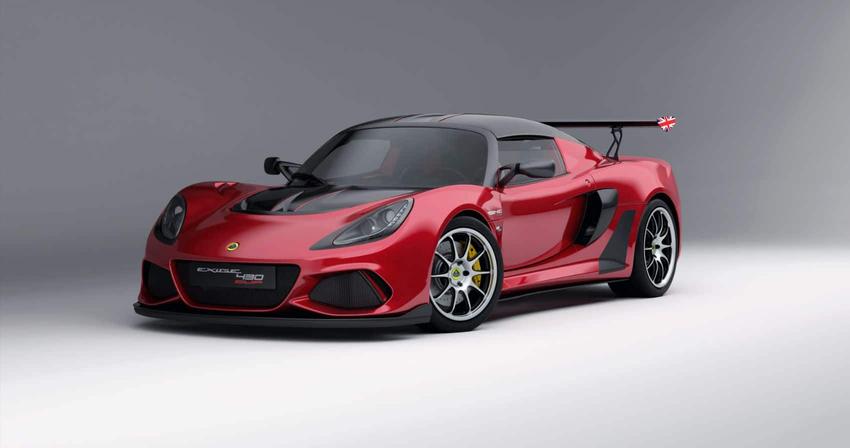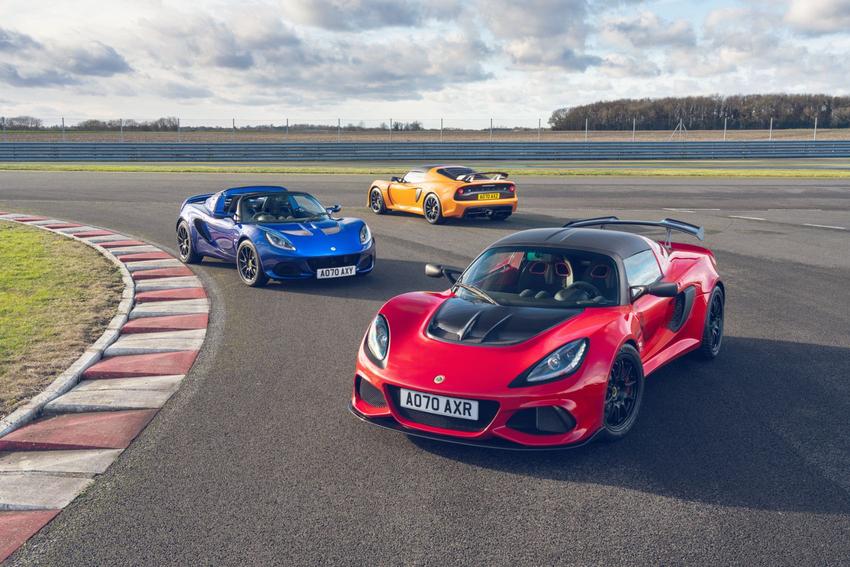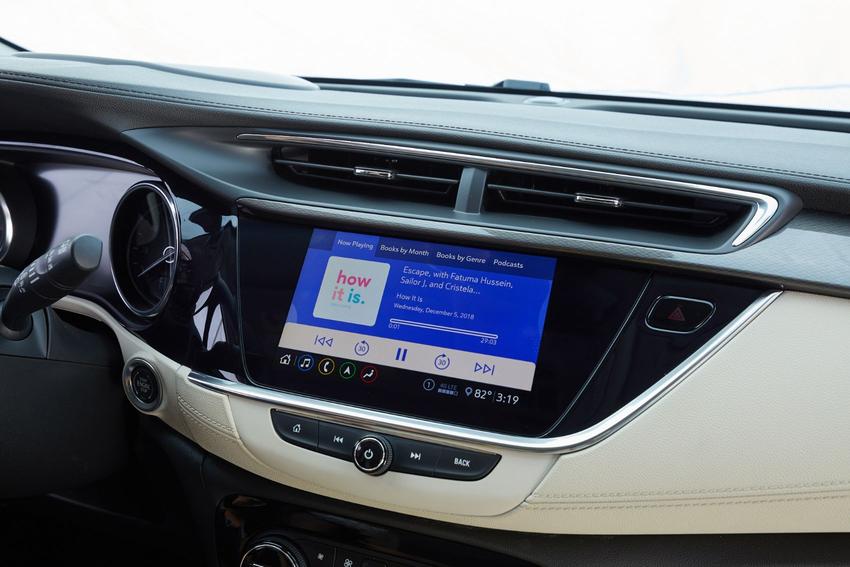The end of an era: Lotus Elise & Exige final version performance specifications
As Lotus announces that it will have a new lineup, we will usher in the outgoing Elise and Exige. The production of Lotus Elise and Exige ended in 25 and 21 years, respectively. Who knows what the future holds for Hethel's iconic automaker, but for now, we have the sharpest versions of two of the best sports cars of all time.
Although we’re talking about two models here, Lotus will break down the final production run into five different versions, two Elise and three Exige models. The five new Final Edition cars will all have more power, greater standard specifications, and – isn’t this a surprise – will all be lighter in weight.
Lotus Elise Final Editions
Lotus Elise Sport 240 Final Edition
Lotus Elise Cup 250 Final Edition
Lotus Exige Final Edition Lineup
Exige Sport 390 Final Edition
Lotus Exige Sport 420 Final Edition
Lotus Exige Cup 430 Final Edition
Lotus Elise Final Editions
Let’s start with the Elise twins, the Sport 240 Final Edition, and the Lotus Elise Cup 250 Final Edition.
Lotus Elise Sport 240 Final Edition
The Sport 240 will get a healthy 23 horsepower bump in the engine room, now putting 240 bhp and 180 lb-ft. of torque to the tarmac. That’ll add up to a zero to 60 mph sprint of 4.1 seconds. The Sport 240 comes with 10-spoke Anthracite forged alloy wheels wrapped in Yokohama V105 tires (195/50 R16 front and 225/45 R17 rear). They’re 0.5kg (a little over one lbs.) lighter than the wheels on the Elise Sport 220.
There are even more weight savings thanks to a range of optional carbon fiber panels, including sill covers and an engine cover, along with the lithium-ion battery and the polycarbonate rear window. This drops the overall weight of the Elise Sport 240 down to right around 2,000 lbs.
Lotus Elise Cup 250 Final Edition


What sets the Elise Cup 250 apart from the 240 is the 250’s attention to aerodynamics. Lotus has further optimized the front splitter, rear wing, rear diffuser, and side floor extensions. As a result, the Elise Cup 250 now produces 145 lbs. of downforce at 100 mph and 342 lbs. of downforce at its maximum speed of 154 mph. The 250 also gets special rims on its way out the factory door; this time, it’s new 10-spoke Diamond Cut M Sport forged wheels with Yokohama A052 tires (195/50 R16 front and 225/45 R17 rear).
There’s a long list of standard equipment, including Bilstein sport dampers, adjustable anti-roll bars, a lightweight lithium-ion battery, and a polycarbonate rear window. Yes, there are many lightweight carbon fiber options that will drop the all-up weight to a shade over 2,052 lbs.
Lotus Exige Final Edition Lineup
Everything the Elise twins have, the Exige triplets seem to have more of (and in terms of weight, less of). The final editions include the Lotus Exige Sport 390, the Exige Sport 420, and the Exige Cup 430.
Exige Sport 390 Final Edition
Replacing the outgoing Exige Sport 350, the new Exige Sport 390 gets a power increase of 47 bhp thanks to revised calibrations of the charge-cooled Edelbrock supercharger. The bottom line is 397 bhp and 310 lb-ft. of torque, which, when bolted to the 2,500-lbs. Exige Sport 390 equates to a zero to 60 mph time of 3.7 seconds and a top speed of 172 mph.
Aerodynamic tweaks include an additional 155 lbs. of downforce at the rear and 100 lbs. up front. Rims and skins are 10-spoke silver forged alloy wheels (7.5J x 17” front and 10J x 18” rear) and Michelin PS4 tires (205/45 ZR17 front and 265/35 ZR18 rear).
Lotus Exige Sport 420 Final Edition
The Exige Sport 420 gains 10 bhp and is the fastest Exige available, maxing out at 180 mph. 60 mph comes up in a quick 3.3 seconds. All up weight is 2,400 lbs., and with 420 bhp and 315 lb-ft. of torque on tap from the supercharged and charge-cooled V6, it’s easy to see where those performance numbers come from.
Standard equipment is impressive: adjustable front and rear Eibach anti-roll bars, three-way adjustable Nitron dampers for different high and low-speed compression settings, 10-spoke Anthracite forged alloy wheels (7.5J x 17′′ front, 10J x 18′′ rear) with Michelin Pilot Sport Cup 2 tires (215/45 ZR17 front and 285/30 ZR18 rear), AP Racing brakes with forged, four-piston calipers, and two-piece J-hook brake discs.
Lotus Exige Cup 430 Final Edition
And finally, we come to the range-topping Lotus Exige Cup 430. The list of goodies bolted onto the 430-bph platform is extensive and mouthwatering. The radical aero package generates as much downforce at 100 mph as the Exige Sport 390 does at 170 mph. Downforce is 168 lbs. at the front and a further 210 lbs. at the rear, for a total of 377 lbs. The all-up weight is under 2,500 lbs. Zero to 60 mph ticks off in 3.2 seconds, and the top speed is 174 mph, thanks to a torque rating of 325 lb-ft.
Every Exige Cup 430 comes with a Motorsport-grade carbon fiber front splitter, front access panel, roof, and diffuser surround, along with enlarged air-intake side pods. Drivers can adjust the handling characteristics via the Nitron three-way adjustable dampers (high and low-speed compression plus rebound adjustment) and the Eibach adjustable front and rear anti-roll bars.
Tires are beefy Michelin Pilot Sport Cup 2s (215/45 ZR17 front and 285/30 ZR18 rear) fitted to 10-spoke forged alloy wheels (7.5J x 17” front, 10J x 18” rear). Wanna stop? You can, and you will on a dime thanks to the forged, four-piston AP Racing brake calipers and higher thermal capacity two-piece J-hook brake discs. There’s also a high-flow titanium exhaust system and a six-position variable traction control linked directly to the ECU.
When production of the Lotus Elise, Exige, and Evora end later this year, the final combined production total will be around 55,000 cars. Together they account for more than half of Lotus’ total road car production since the first Lotus in 1948.
Tony Borroz has spent his entire life racing antique and sports cars. He is the author of Bricks & Bones: The Endearing Legacy and Nitty-Gritty Phenomenon of The Indy 500, available in paperback or Kindle format. Follow his work on Twitter: @TonyBorroz.
Photo and photo source: Lotus Group.
-
Latest
 Save the world and other new year resolutions
Save the world and other new year resolutionsNew Year’s resolutions are now common. Despite honest intentions, most resolutions will not last. In 2007, Richard Wiseman from the University of Bristol recorded 3,000 people and their resolutions, 8...
-
Next
 Buick provides new in-car app for podcasts and audiobooks
Buick provides new in-car app for podcasts and audiobooksBuick went to Hollywood. The automaker has just teamed up with actress Reese Witherspoon's "Hello Sunshine" to combine "Reese's Book Club" with Buick's infotainment system. Reese's Book Club brought w...
Popular Articles
- Car buyers willing to redouble their efforts to buy a car
- Hyundai Canada announces adjustment of its marketing department
- Mercedes-Benz Canada announces comprehensive Mercedes-EQ charging strategy
- GM extends OnStar automotive insights to non-GM
- Kia Canada enhances buyer knowledge at new electric vehicle experience center in Vancouver
- Mitsubishi Motors launches digital showroom
